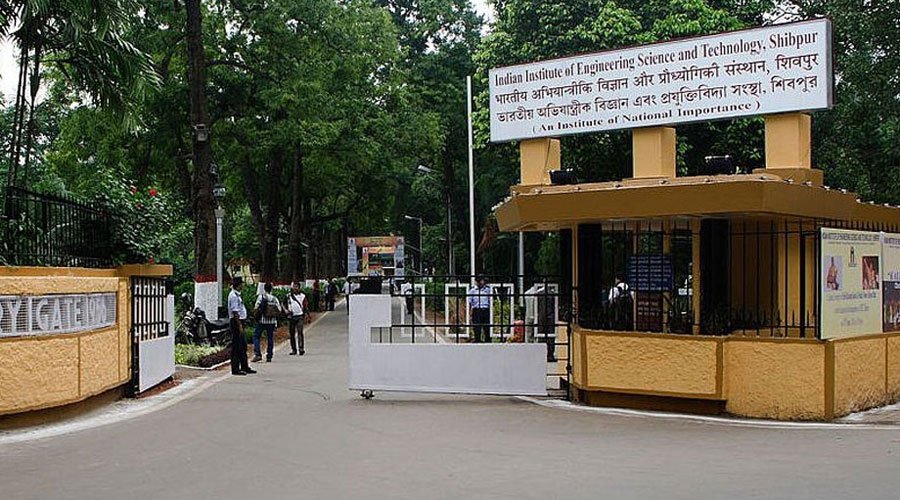A section of students at the IIEST could not attend online classes in the last semester because of poor Internet connectivity at home, says a survey conducted by the authorities of the Shibpur institute.
The authorities launched the survey to collect information about the students’ ability to attend online classes in the autumn semester on the basis of their experience in the previous semester.
The feedback from 1,830 of the total students reveals that as many as 15.5 per cent of them could not attend online classes in the last semester and 18.3 per cent faced problems because of “poor” Internet connectivity at home, said an official of the institute.
The responses from a group of 1,200 students showed that 13.2 per cent of them could not download lectures from the institute’s website and 29.8 per cent could download only partially. Apart from poor connectivity, a section of the 1,200 students cited lack of a smart device as a reason for not being able to download lectures.
A group of 917 students responded to the query “How do you rate your experience of online teaching?”. An official said 10.1 per cent of the students rated online teaching as “poor”.
The institute has been following a combination of live online classes and letting students download recorded lectures and study materials from the institute’s website in the autumn semester, which started on August 24. This model is being followed as classes cannot be held on the campus because of the Covid-19 pandemic.
As students of the institute come from a wide spectrum of geographical locations across the country and Net connectivity is not always up to the desired level, the institute felt the need to carry out the survey.
“As students had vacated the hostels in mid-March, before the start of the lockdown, some of the classes in the previous semester were held online. The students last month were asked to fill in Google forms to share their experience of attending classes online,” he said.
IIEST director Parthasarathi Chakrabarty said the institute was speaking to teachers to chalk out what remedial measures could be taken. “We could buy the poor students devices such as tablets. As long as the institute will continue to hold online classes, the students will not have to pay Rs 17,500 as mess advance, Rs 3,000 as mess entrance fee, Rs 1,000 as seat rent and Rs 800 as electricity and water charges. They can buy a high-speed data pack with the saved amount,” said Chakrabarty.
The institute is also trying to contact telecom service providers to help out students who are struggling with poor connectivity at home, said an official.











